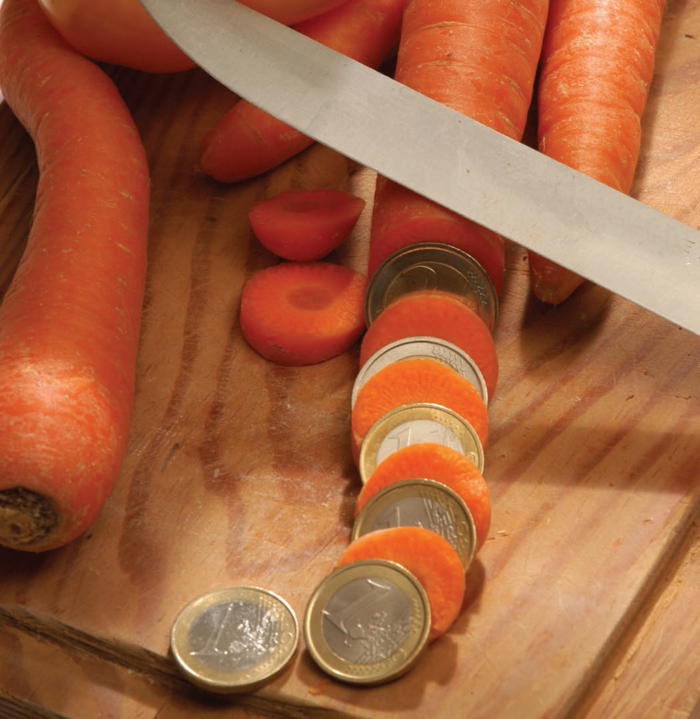Mike Neary, Manager of Horticulture with Bord Bia, explains how new thinking and EU regulations are positively shaping the future of promotional funding for horticulture products
Every product and service no matter how iconic needs to be continually promoted. We only have to look at the vast marketing budgets that well know drinks brands, sporting brands etc spend on promoting their products every year across a range of media channels. They do this because it delivers them increased sales and new customers. The market never stands still, and keeping a product or brand in front of consumers is essential to maintain hard-won market share and to build it further.
Horticulture in many ways is a marketer’s dream. Whether you are talking about the joy and benefits of gardening in terms of being good for the mind and body (not to mention the environment or the health credentials of fruit and vegetables), there is a great story to tell. Despite this when one looks at the avalanche of promotional activity and advertising that we encounter every day horticulture does not feature as highly as we would like or indeed as it deserves. (Bloom week is probably the exception.) Indeed when we do see horticulture products feature it is often in relation to price promotional activity rather than on the credentials of the products in question.
“The lack of funding is a key issue that negates against getting a generic promotional campaign initiative off the ground”
The lack of funding is a key issue that negates getting a generic promotional campaign initiative off the ground. It has been a challenging business environment for many sectors in recent years and when cash flow is tight, one of the spend casualties is often the marketing budget. One way to overcome this challenge at an industry sector level is to co-operate with other similar businesses in contributing to a central fund that will be used to fund a generic promotional campaign. This initiative also creates the opportunity to potentially access matching funding from the state or EU to increase the promotional war chest.
It has been encouraging in recent years despite the challenging environment to see sector interests come together in horticulture and jointly support a number of promotional initiatives which have attracted either state or EU matching funding. This year we have seen the REI Gromore gardening initiative which launched a campaign this spring to target the younger demographics to get them to engage in the gardening activity. This initiative is being supported by garden retailers, nurseries and Bord Bia as well as attracting sponsorship from Bord Na Mona and Westland. In recent years strawberry growers have jointly funded with Bord Bia a National Strawberry Week which helps to increase the sales of berries in a peak growing period. Fresh produce packers and growers have been funding with Bord Bia since 2009 a schools initiative around the growing of fruit and vegetables and the role they play in a healthy balanced diet. In addition, the mushroom sector is jointly funding a three-year generic promotion of mushrooms on the Irish and UK markets (valued at €2.7m) which are matched by EU funds. The potato sector in the guise of growers and packers has come together to launch a €1m three-year promotion of potatoes on the home market which was launched this autumn. This initiative has also secured EU funding as well as support from the Department of Agriculture, Food & Marine.
The EU provides matching funding towards the generic promotion of agricultural products in the internal market and in third countries. The promotion programmes can be either multi-country or single country programmes. The current EU budget is €60m per year. There are 200 such programmes running at the moment which are co-financed 50% by the EU, up to a potential 30% by member states and at least 20% from the proposing organisations (eg trade/ intertrade organisations). Examples of current multi-country programmes in which Bord Bia is involved include cheese (Discover Farmhouse Cheese campaign) and mushrooms (Just Add Mushrooms campaign) and the new potato campaign which commenced in October. The European Commission launched a proposed reform of the established information and promotion regime for European agricultural and food products in November 2013. The new Regulation 1144/2014 will enter into force on 1 December 2015.
The reform will see some changes – it aims to enhance the co-operation between organisations from different member states through multi-programmes. There will be an extended scope of beneficiaries, a wider list of eligible products including processed products and the possibility of displaying brands and origin under strict conditions. The budget available within the EU for promotional programmes will be increased gradually from the current level of €60m to €200m by 2019 with higher co-financing rates (up to 80%) and an end to national co-financing. The closing date for applications will be in February each year.
Experience to date with the aforementioned campaigns has shown that they are impactful and promote increased sales. From 2016 the EU is providing an even bigger carrot now to encourage industry stakeholders to come together to contribute jointly and submit an application to the EU for increased support funding. When it comes to the generic promotion of horticultural products this is an offer that will be too good to turn down. ✽
 MIKE NEARY, Manager of Horticulture at Bord Bia. For further information contact the Bord Bia Horticultural Division or the Food Industry Development Division in the Department of Agriculture, Food & Marine at email: Agripromo@agriculture.gov.ie |





